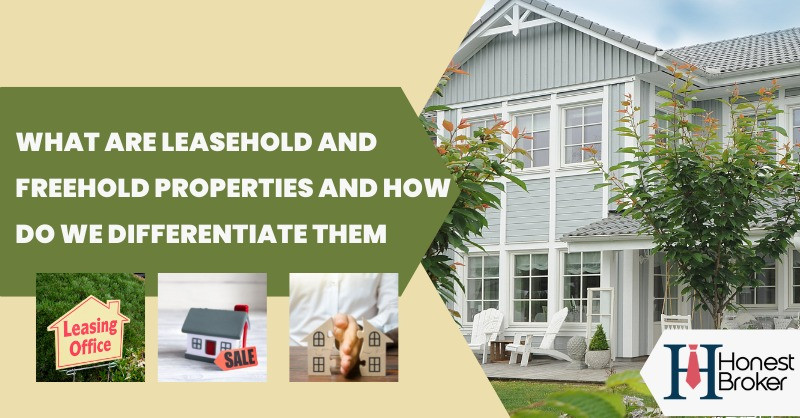 Blog
Blog
The main terms used during buying a property are leasehold and freehold property. They both differ in the terms of land ownership and control. Let us discuss both the terms individually and try to compare between them, so that one can have a clear idea about those terms while buying a property.
Leasehold Property
Leasehold is a type of ownership where after purchasing a leasehold property, one can have the right to stay for a particular period of time. The person who buys the property cannot be called as the owner of the property. After the lease period is expired, the property rights will again go back to its original owner. According to one’s comfort, the lease period can be extended based on certain terms and conditions. The lease period is given for the period of 99 years and can be extended further too.
Example: buying a flat by way of leasehold ownership, where the flat owner has the ownership only to the flat but not on the land on which the flat is built.
Advantages:
i. After the completion of the lease period, the property can be renewed if you wish to continue to live in the property further.
Ii. The landowner, but not the buyer, is responsible for the maintenance of the property.
Disadvantages:
The ground rent paid by the individual to the leasehold owner might increases over time.
The freedom and liberties of the leaseholder is limited and has to take the permission from the owner before making any repairs to the property.
They are not allowed to keep pets in the property they buy.
Sub-letting a leasehold property is not allowed.
Freehold Property
Freehold property is the type of ownership which includes both the property and the land on which the property has been built. Unlike the leasehold property, there is no time limit on the property because the land belongs to the same owner. It does not have any uncertainties related to the ownership issues. The owner of freehold properties can sell, renovate or transfer the property and the seller will have no role in it. Selling the property doesn’t require much of the legal action, but buying a freehold property is considered to be more expensive than the leasehold one. The owner of the freehold property is only required to pay the maintenance charges of the property.
Example: Buying a standalone property or a house. In such cases, the owner is not required to go through the expiry of lease term or any other conditions.
Advantages:
The owners of the freehold property can make changes to the structure of the house they purchase.
Since there is no involvement of any expiry date, the property can be transferred to the subsequent generations.
Disadvantages:
Maintenance of the property is the sole responsible of the owner who has purchased the property.
It is more expensive when compared to the leasehold property.
Difference between the leasehold and freehold property
How to convert leasehold property to freehold property?
The leasehold property can be converted to the freehold property based on the clear sale deed, No Objection Certificate (NOC) and General Power of Attorney (GPA). One has to pay the conversion charges to the authority and can get the property converted on the terms of proof of permanent electricity connection or house tax assessment. The other documents required while converting the leasehold property into freehold are Copy of lease Deed, copy of Sale of Agreement. Possession proofs and allotment letter by the government. It varies from state to state and country to country.
Some FAQs
Can you extend your lease period?
Lease period can be extended if one sign of the lease deed containing an extension clause rather than the renewal clause. In this manner, if the lease period expires then one can have the option to extend the lease based on the terms and conditions of the original Lease Deed.
What happens after the leasehold expires?
When the leasehold term expires, the property bought by the individual is reverted back to the original owner of the property. If the individual had paid the mortgage, owning the right of the property, still he will not have the actual rights on the property once the leasehold period expires. The individual can either leave the property or can remain as a tenant by paying monthly rents.
Is it hard to sell a leasehold property?
The leasehold property is not allowed to sell by the person who purchased the property as it belongs to the actual owner. But if in case the leasehold property can be sold, then it requires many paperwork, planning and permissions from the legal authorities. Hence, is considered to be more complicated than the freehold property.
Conclusion
This article gives the reader the bird eye’s view of the advantages as well as the disadvantages of the leasehold and the freehold properties. Though, the freehold properties are considered to be more advantageous than the other but the leasehold can be converted to freehold properties legally. The lease period can also be extended based on the owner’s choice. Freehold properties do not require the involvement of the person selling the property and hence the buyer becomes the owner. The next generation can inherit the freehold property which is not possible in case of leaseholders. So, before going into the buying of the properties one is always advised check the terms and conditions or other rules which will help them in the long run.





